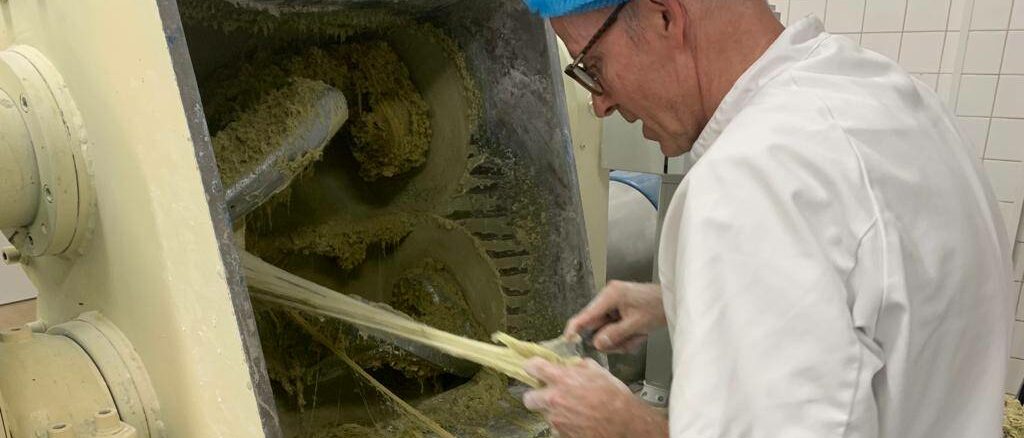
BenBits opens a new factory in Netherlands.
For years, we’ve heard the same thing: Dutch industry is moving to (sometimes lower-cost) countries outside of the country. This week, however, the situation is reversed: an Italian chewing gum manufacturer is relocating to the Netherlands. To be exact, Heerhugowaard.
It has to do with the BenBits chewing gum brand, which was popular in the United States throughout the 1970s and 1980s. After years of not being used, the brand was brought back to life in 2016, but investors thought it was too soon.
It’s currently being revived by Milan Dontje (27), a young entrepreneur who is spearheading the effort. It’s easier for Dontje to keep an eye on things when they’re made in the Netherlands.
“In addition, we’d like to reduce the amount of CO2 emitted throughout the production process.” Instead of the usual round or square shape, we’d want to produce chewing gum in the shape of a turtle. That’s something that other vendors can’t handle, so we take care of it ourselves. “
Heerhugowaard’s weekly output has increased to 300 kg (one chewing gum weighs 1.5 grams). In three years, we plan to increase production to roughly 1000 kilogrammes per week and begin exporting again. “Of course we want to do that.”
It’s been a rough few years for the chewing gum product. Many people were obliged to stay at home during Corona; there were no parties, and fewer of us went out to eat. In 2021, Nadia Menkveld observed, “It appears that there is less of a desire for fresh breath.” For ABN Amro, she looked into the confectionery sector and discovered that sales of peppermint and chewing gum had plummeted.
Cloetta Holland, the company behind Sportlife and King, predicted a 15% decline in sales. There is still a long way to go before Marten Suurmeijer of NielsenIQ Netherlands can say the drop is finished. “We’ve spent 80 million euros on chewing gum at the grocery and the petrol station in the last 52 weeks.” That’s roughly the same as it was in the past. There is a 4.2 percent decline in volume as well. “
It’s not going to get better for Suurmeijer because a large percentage of employees are still working from home. There has also been an increase in the cost of chewing gum in the last several months. Between four and five euros, you may get a jar containing 75 or 100 chewing gums. A strip of 12 that you bought a decade ago costs a lot less than that. I wonder whether anyone is now asking: Do I really need this chewing gum? As a result, I’m not sure if people are reaching for chewing gum as readily as they were before Corona. “
In the present, sluggish chewing gum industry, Dontje has no fear: “With a brand-new product, I’m entering the market at the perfect time.” Our chewing gum is plastic-free, natural, and vegan, and we think it will appeal to a younger audience. The older generation, on the other hand, thinks, “Hey, we remember that brand from the past.” That’s a great match, in my opinion. “
“Of course we aim to reach 1000 kg,” “of course we aim to reach 1000 kg.”
In addition to being “plastic-free,” the new BenBits promise to be “natural.” Competition Perfetti van Melle (Mentos) contacted the Advertising Code Committee to express its displeasure. Perfetti van Melle doubted Benbits’ ability to deliver on its claim of natural chewing gum. Perfetti was proven correct in April of this year, much to BenBits’ chagrin.
Founder Milan Dontje currently claims that the verdict was based on a prior supplier’s outdated recipe for chewing gum, which was the subject of the lawsuit. A new gum base and production methods have been implemented, according to the company.

Be the first to comment